Kino Lorber Gives SpaceCamp A Proper Launch
(NOTE: The following review will contain minor spoilers necessary solely for the discussion of plot and/or characters. If you’re the type of reader who prefers a review entirely spoiler-free, then I’d encourage you to skip down to the last few paragraphs for my final assessment. If, however, you’re accepting of a few modest hints at ‘things to come,’ then read on …)
“Kathryn, Tish, Max, Rudy, and Kevin are a group of bright but incorrigible high school students spending their summer at the NASA SpaceCamp. But when a frightening miscommunication occurs during a space shuttle training mission, the teens and their astronaut instructor are accidentally launched into orbit. Can this young team of unlikely heroes work together to survive the outer-space adventure of a lifetime?”
For starters, SPACECAMP is an ensemble piece, and that’s no easy task when you’re trafficking in the realm of Science Fiction much less youth casts.
Essentially, I’ve always found that space fantasies work better at captivating audiences when the tale has a central character arc – not several small arcs as tends to happen with ensemble stories – and Camp’s script from W.W. Wicket and Casey T. Mitchell opens almost with the promise of this being Andie Bergstrom’s journey (played by the stunning Kate Capshaw). Though she’s clearly billed and built as the lead, Camp becomes more of a group project once the real ‘camp’ begins, and this opens the door for a wealth of young talent just emerging on the Hollywood scene: Tate Donovan, Lea Thompson, Kelly Preston, Larry B. Scott, and Leaf (aka Joaquin) Phoenix.
Therein lies the central problem I had with so much of the film: director Harry Winer does what he can to balance out all that unfolds here, doling out scenes with an almost formulaic distribution from one newcomer to the next. Consequently, none of these “people” feel as authentic as might happen if the script had instead focused on one or two principles instead of trying to give everyone equal time: Scott and the vivacious Preston end up having the least narrative definition, but that isn’t saying much as all of the principles featured here end up having little more than a single ‘note’ to the overall composition. In fact, most of the introductions and the time spent on Earth ends up feeling a bit jumbled and even truncated: as pupils, they’re not seen receiving much education (there’s a single montage) before they’re suited up and accidentally blown into orbit, definitely highlighting that this is all fantasy and very, very little reality.
Sadly, Camp is a film that’s almost been forgotten in film history through no fault of its own.
Only a few months before its theatrical release, America’s National Aeronautics and Space Administration (NASA) endured one of its greatest tragedies when the space shuttle Challenger exploded only seconds after liftoff on January 28, 1986. Camp opened in that May, and I suspect audiences had grown more than a bit cynical of the entire space shuttle program, having watched their heroes killed and their deaths analyzed ad nauseum on the evening news for weeks. Gone from our collective history were the sentiments of success and achievement that had fueled so much of space exploration; and yet here – in its place – a studio was distributing a film about how a ‘simple mistake’ gave non-astronauts a chance to have the adventure of a lifetime. The Challenger disaster reminded a generation of how the business of outer space was dangerous.
Camp’s box office returns were understandably poor, none of it owed to anyone involved with the feature much less the studio. Instead of giving the film a chance, folks stayed away from the picture.
In the interviews with Ms. Thompson and Mr. Winer featured on this disc, both figures touch on how they’ve been approached by fans in the years since; and both recount how – also much like the original Star Trek – the vision of NASA portrayed in the film inspired them to pursue careers in science that would ultimately lead to employment with the agency or its various manufacturers. In my estimation, there’s no greater compliment paid to art than seeing it stir others into exploring their own personal horizons; and I’d argue that this disc is worth the spin for no other reason than that. While its story is predictable, its message of how a team rises to the occasion against all obstacles remains one that is truly timeless.
RECOMMENDED.
So long as you can make it through the film’s first forty-five minutes or so, SpaceCamp actually isn’t half bad. It’s pure escapism, but its second half is handled much better than the first: character introductions are a bit saccharin, giving the story the feel more of a telefilm than a big budget silver screen production. It doesn’t help the ensemble that all of its characters are fairly thinly drawn, but – come the big finish – the flick is a forgivable 107 minutes with as good looking a bunch of budding astronauts as you’re ever liable to find. (Need I remind you: Capshaw, Thompson, and Preston! They’re heavenly bodies, each and every one!)

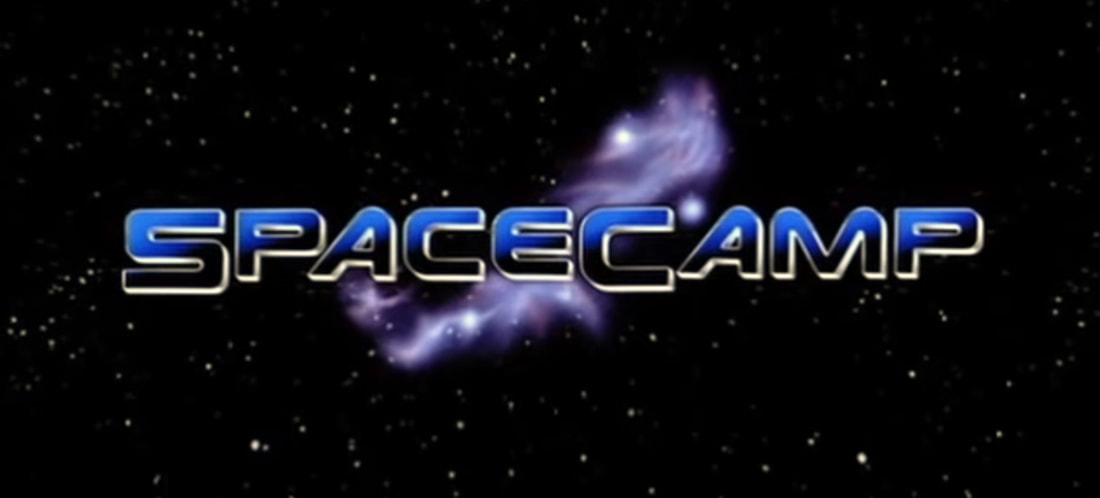
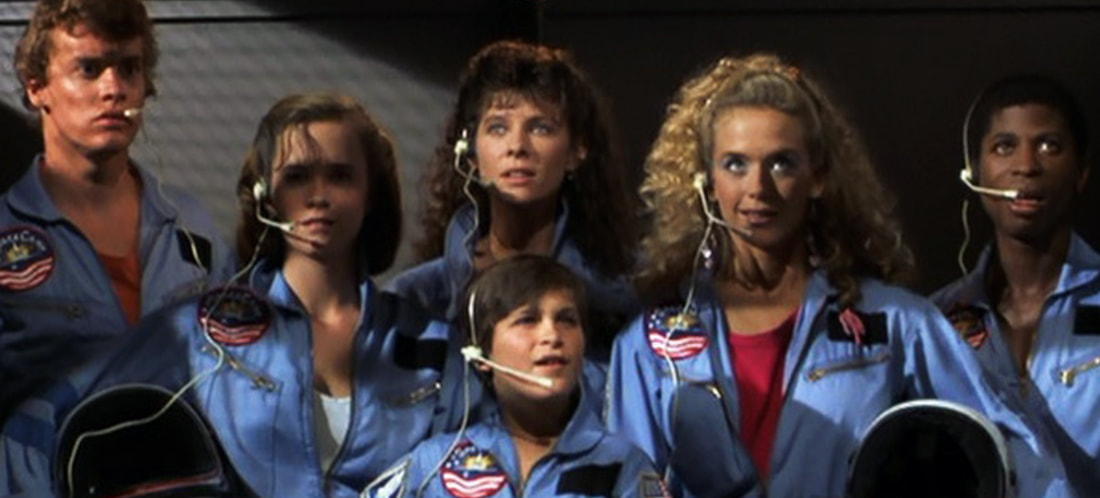
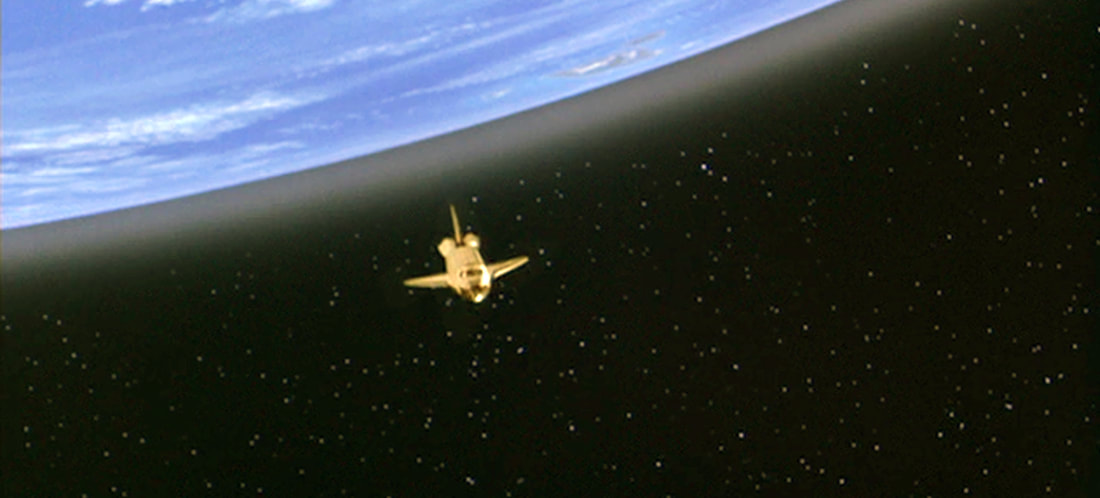
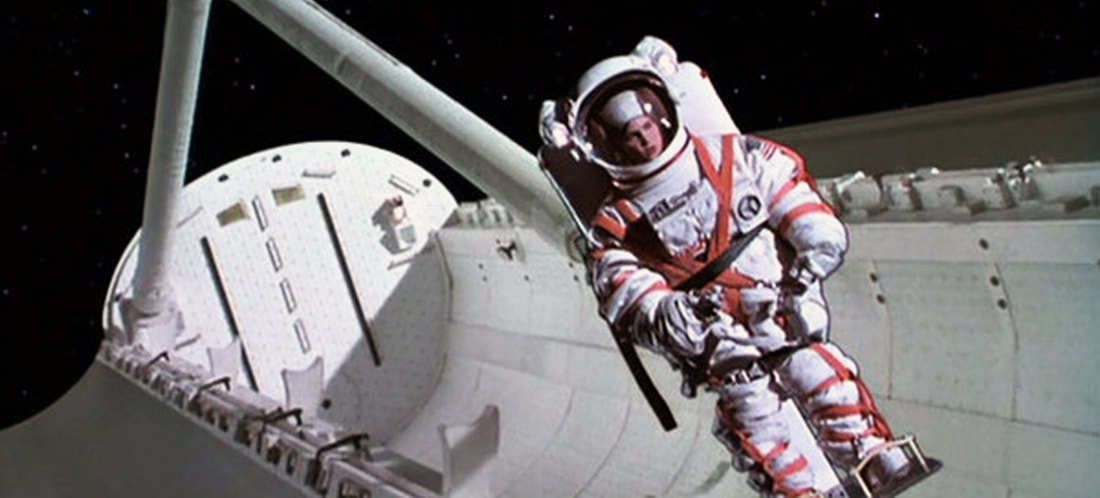
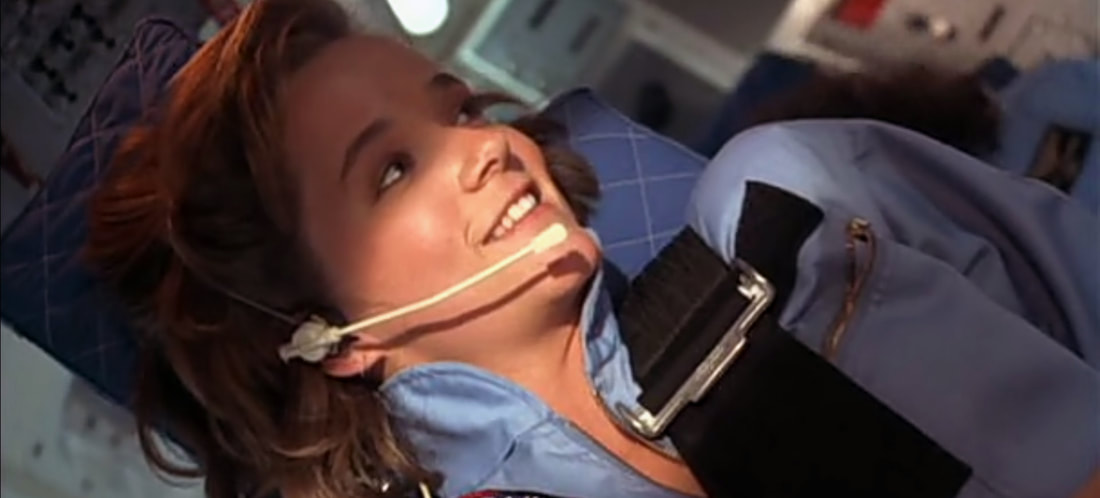
 RSS Feed
RSS Feed